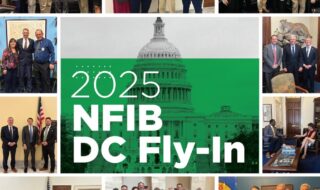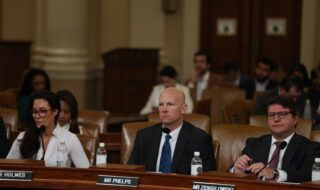Topics:
March 15, 2023
Supreme Court decision and three amicus briefs filed by the Legal Center
Supreme Court Victory and Three Ongoing Cases for Small Business Rights
Alexandru Bittner v. United States of America
On Feb. 28, the U.S. Supreme Court reversed a lower court’s decision, holding that the failure to file the required foreign bank account report under the Bank Secrecy Act was a single violation, not a separate violation for each accounted not reported. NFIB previously filed an amicus brief in the case advocating for this outcome. “Small businesses will benefit from this Supreme Court decision,” said Beth Milito, Executive Director of NFIB’s Small Business Legal Center. “By concluding that the failure to file a required report is a single violation, the Court has protected small businesses from costly penalties that could be detrimental to their businesses.”Geraldine Tyler v. Hennepin County
On Mar. 6, NFIB filed an amicus brief at the U.S. Supreme Court in this case, which concerns whether the Takings Clause of the Fifth Amendment (which states that the government may not claim private property without providing “just compensation” to the original owner) prevents the government, after seizing and selling a person’s property to collect back taxes, from keeping the surplus amount collected from the sale. This government practice is commonly referred to as “home-equity theft.” “This case highlights a fundamental amendment of our country’s Constitution,” said Milito. “Small business property owners work hard to comply with various regulations and pay numerous taxes at every level of government. Due to the Fifth Amendment, the government has no authority to keep a surplus of money accumulated and harm property owners. NFIB urges the Supreme Court to reverse the Eighth Circuit’s decision.”Dakota Finance LLC v. Naturaland Trust
On Mar. 3, NFIB filed an amicus brief supporting a petition for the U.S. Supreme Court to review a decision from the Fourth Circuit. The case concerns a South Carolina small business that allegedly failed to get needed permits required under the Clean Water Act (CWA). After state regulators inspected the property and sent a notice of alleged violations, environmental groups filed a citizen suit alleging CWA violations. CWA citizen suits are preempted if a state is “diligently prosecuting” an enforcement subsection of the CWA. The Fourth Circuit concluded, however, that the state had not triggered the “diligent prosecution” threshold until they opened the matter up to both public notice and judicial review – which came after the environmental groups had filed their citizen suit. This left the small business to fend off two lawsuits for the same alleged violation at once. “Small business property owners routinely assess the requirements of environmental laws and regulations, including the Clean Water Act,” said Milito. “This case highlights the loopholes in the dual-enforcement scheme of the Clean Water Act, where both private and government actors can seek penalties for an alleged violation, even those made without bad faith. The Court should reject the Fourth Circuit’s approach and shield small businesses and property owners from duplicative and costly litigation.”Burford v. Alcoa
On Feb 14., NFIB filed an amicus brief before the Texas Court of Appeals in this case, which concerns whether Texas courts should permit asbestos lawsuits against employers for any exposure to asbestos, regardless of how remote the exposure is. The NFIB brief argued that allowing lawsuits based on any exposure to asbestos would open the floodgates to asbestos litigation. This particular case, where a woman washed her husband’s clothes after he was briefly exposed to asbestos at work and subsequently sued the business, is a perfect example of how such broad laws can be abused.
Get to know NFIB
NFIB is a member-driven organization advocating on behalf of small and independent businesses nationwide.
Related Articles

July 2, 2025
NFIB Key Votes One Big Beautiful Bill Act in U.S. Senate and Ho…
NFIB key votes the One Big Beautiful Bill Act in the 119th Congress and urg…
Read More


July 2, 2025
Small Business Owners Push Priorities in Capitol Hill Meetings
Over 80 small business owners attended NFIB’s annual Fly-In. They attende…
Read More



July 2, 2025
Small Business Owner Testifies Before U.S. House Committee on W…
Virginia NFIB member and small business owner Joshua Phelps spoke to the U….
Read More







